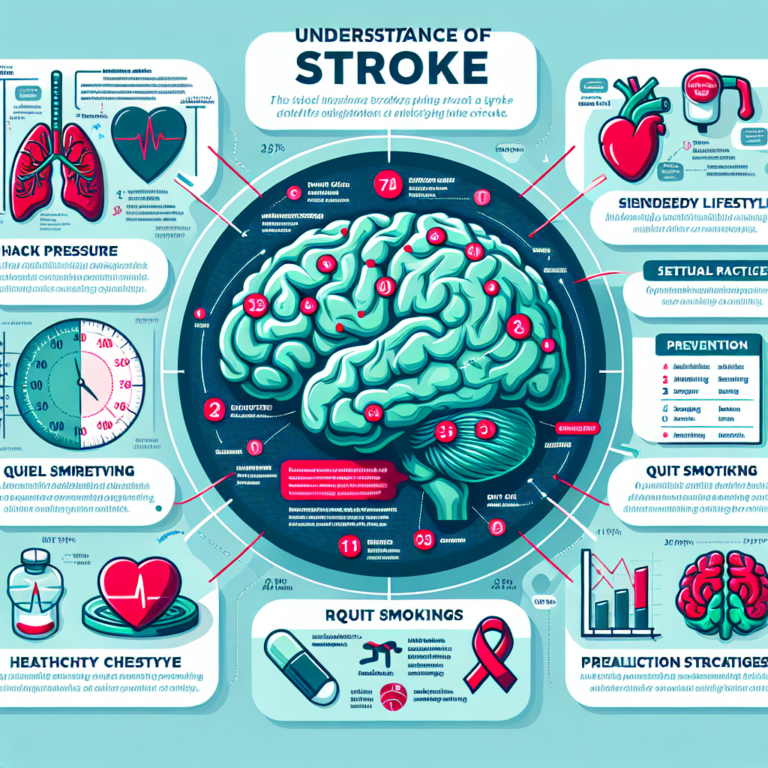Introduction
Imagine witnessing a loved one transform overnight due to an acquired brain injury (ABI). The shift from vitality to vulnerability can be jarring, not just for the individual experiencing it, but also for family and friends who become caregivers. The role of caregivers in supporting loved ones with ABI is essential, profoundly affecting recovery, quality of life, and the emotional well-being of the whole family. In this expansive exploration, we will delve into the various dimensions of this critical role, understand the challenges caregivers face, highlight effective strategies, and ultimately celebrate their resilience and dedication.
Understanding Acquired Brain Injury (ABI)
Before we dive into the role caregivers play, it’s crucial to understand what ABI encompasses. Acquired brain injuries occur after birth and can result from various incidents like falls, strokes, traumatic injuries, or infections. These conditions often lead to cognitive, physical, and emotional changes, necessitating a support system for rehabilitation and adjustment.
The Impact of ABI
ACQUIRED BRAIN INJURY (ABI) can influence emotional health, physical capabilities, and cognitive functions that affect day-to-day activities. Therefore, caregivers take on new roles ranging from personal assistance to emotional support, often assuming responsibilities beyond what was once considered typical.
| Area of Impact | Examples |
|---|---|
| Cognitive | Memory loss, difficulties with attention |
| Physical | Mobility issues, weakness |
| Emotional | Frustration, anxiety, depression |
The Role of Caregivers in Supporting Loved Ones with ABI
Caregivers are the unsung heroes in the journey of recovery from ABI. Understanding their roles can provide insights into their importance and highlight the strategies they can employ for successful support.
Emotional Support: The Cornerstone of Caregiving
Emotional support is one of the most critical aspects of caregiver responsibility. Sometimes, it’s simply about being there. For instance, after experiencing a severe brain injury, Alex’s family provided a constant presence, offering encouragement and a listening ear. This not only helped Alex feel less isolated but also motivated him to participate in rehabilitation actively.
Practical Assistance: Managing Daily Life
Caregivers often deal with practical tasks such as helping with medication management, daily living activities, and therapy scheduling. For example, after her husband suffered a stroke, Maria organized a daily schedule that incorporated physical therapy exercises alongside meal preparation and social activities. This strategic planning greatly facilitated Bob’s recovery trajectory.
Advocacy: A Voice for the Loved One
Advocating for a loved one’s needs can be another vital element of a caregiver’s role. Caregivers frequently find themselves communicating with healthcare providers, seeking resources, and ensuring that their loved ones receive the best possible care. For instance, during a family meeting at the rehabilitation center, Sarah ensured the team was aware of her brother Tom’s preferences and specific needs, ultimately fostering a tailored recovery plan.
Education: Understanding ABI and Its Implications
An informed caregiver can bridge many gaps in care. Learning about ABI, its effects, and rehabilitation strategies can empower caregivers. Through webinars and literature, Mark, a caregiver for his sister with traumatic brain injury, built a comprehensive knowledge base that enabled him to ask the right questions and engage better with healthcare professionals.
Challenges Caregivers Face
While the rewards of caregiving can be immense, challenges abound. Recognizing these hurdles can help families prepare better for the caregiving journey.
Emotional Strain
Caregiving often leads to emotional exhaustion or caregiver burnout. The pressure to support a loved one can become overwhelming, as it did for Jill, who began experiencing signs of anxiety herself while caring for her husband. Recognizing the importance of self-care, she began attending support groups, which not only helped her manage stress but also provided invaluable insights from fellow caregivers.
Financial Pressure
The financial implications of caregiving, including medical costs, potential lost wages, and other caregiving-related expenses, can be significant. The reality for many families dealing with ABI is daunting. For example, Tom’s caregiving journey added substantial costs for therapy sessions, prompting his family to explore national funding programs designed for ABI support.
Isolation
The social life of caregivers can diminish as they devote time to supporting their loved one, which can lead to feelings of isolation. Mary, for instance, found herself withdrawing from friends to focus on caring for her son following his accident. By joining online communities, she connected with others in similar situations, transforming her sense of isolation into a shared experience and support network.
Strategies for Effectiveness in Caregiving
Given the challenges faced, caregivers can adopt various practical strategies to enhance their effectiveness.
Create a Care Plan
Developing a comprehensive care plan that includes rehabilitation goals, scheduling, and medication management can streamline caregiving efforts. For instance, Elise worked with occupational therapists to formulate a daily care plan for her daughter, ensuring a balance of activity and rest.
Develop a Support Network
Building a robust support system can play a significant role in managing stress and sharing responsibilities. Neighborhood support groups or family gatherings can ease the burden. After joining a caregiver support group, Dave felt more supported and energized, allowing him to share experiences and gain insights.
Practice Self-Care
A well-cared-for caregiver is more capable of providing quality care. Regular exercise, hobbies, and time away from caregiving duties can rejuvenate caregivers. Linda prioritized her well-being by designing a self-care routine that included weekend getaways with friends and regular meditation, which improved her resilience in managing her caregiving role.
Seek Professional Help
Sometimes, professional assistance may be essential for both caregivers and loved ones. Engaging a therapist or counselor can be advantageous for emotional processing and stress management. For instance, David voluntarily got therapy to equip himself mentally for the unique challenges of caring for his father, providing him with coping strategies and emotional tools.
Case Studies: Real-Life Applications
Case Study 1: Alex’s Family
Situation: After a severe motor vehicle accident, Alex suffered a traumatic brain injury, leading to significant cognitive challenges.
Intervention: His family implemented daily routines incorporating physical and occupational therapy.
Outcome: Consistent support resulted in noticeable improvements in Alex’s cognitive function over six months, showcasing how a structured plan can significantly influence recovery.
Case Study 2: Maria and Bob
Situation: Bob experienced a stroke, leaving him with mobility issues.
Intervention: Maria structured a balance of physical therapy and social interactions to encourage movement.
Outcome: Over time, Bob regained significant mobility, emphasizing the effectiveness of blending physical activity with emotional support.
Case Study 3: Sarah and Tom
Situation: Tom’s ABI led to behavioral changes requiring careful management.
Intervention: Sarah’s advocacy with healthcare providers resulted in tailored therapeutic approaches.
Outcome: Tom’s care plan significantly improved, showcasing the power of informed advocacy.
Conclusion
The role of caregivers in supporting loved ones with ABI is nothing short of vital. Their emotional commitment, practical assistance, advocacy, and education are cornerstones in navigating the complexities of ABI recovery. Although the journey is riddled with challenges, the rewards—seeing a loved one regain skills, confidence, and quality of life—are immeasurable.
Inspiring change and fostering resilience through effective caregiving should be a communal effort. Remember to connect with others, seek help, and prioritize self-care to ensure you’re able to provide the most effective support possible.
FAQs
1. What does ABI stand for?
Answer: ABI stands for Acquired Brain Injury, which refers to brain injuries occurring after birth from various causes such as strokes, falls, or accidents.
2. What are some common challenges caregivers face?
Answer: Common challenges include emotional strain, financial pressure, and social isolation.
3. How can caregivers manage stress effectively?
Answer: Caregivers can manage stress through self-care routines, counseling, establishing support networks, and taking regular breaks.
4. Is it possible to balance caregiving and personal life?
Answer: Yes, creating a structured care plan and developing a support system can help balance caregiving responsibilities with personal life.
5. How can caregivers effectively communicate with healthcare professionals?
Answer: Caregivers can enhance communication by being well-prepared with questions, understanding their loved one’s needs, and advocating for tailored care approaches.
In conclusion, let us recognize and appreciate the indispensable role caregivers play in the lives of those with ABI. They embody strength, patience, and love, transforming challenging circumstances into journeys of hope and recovery.















